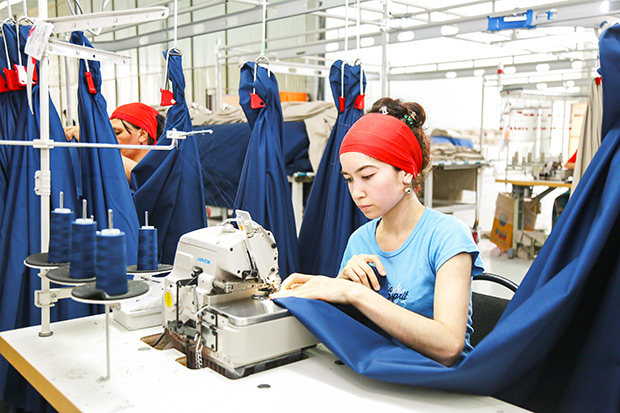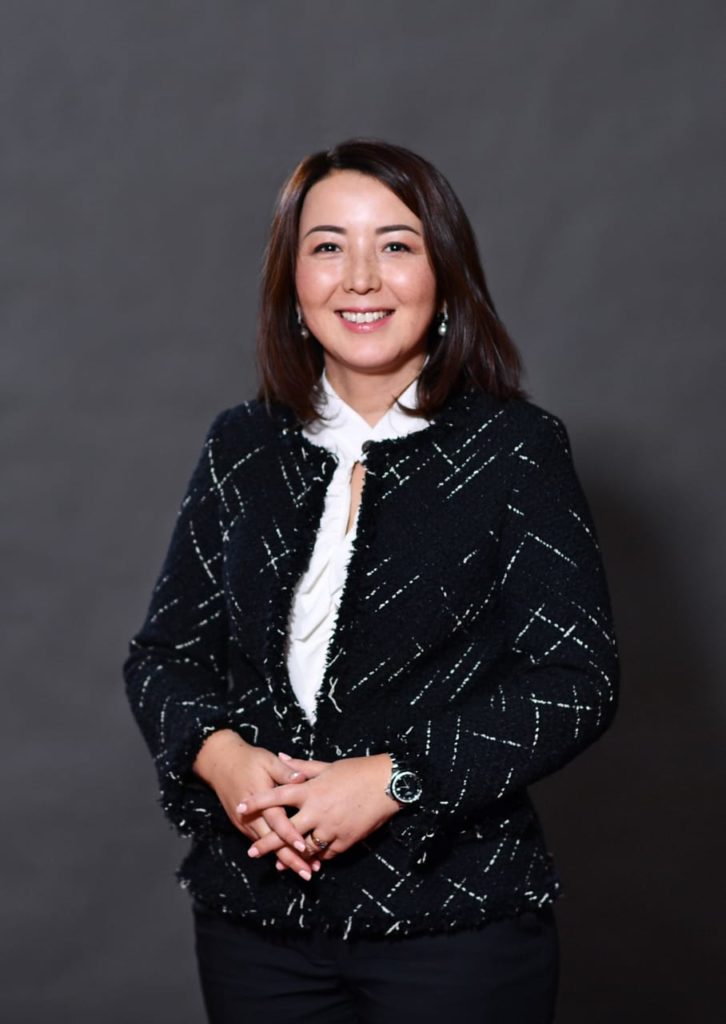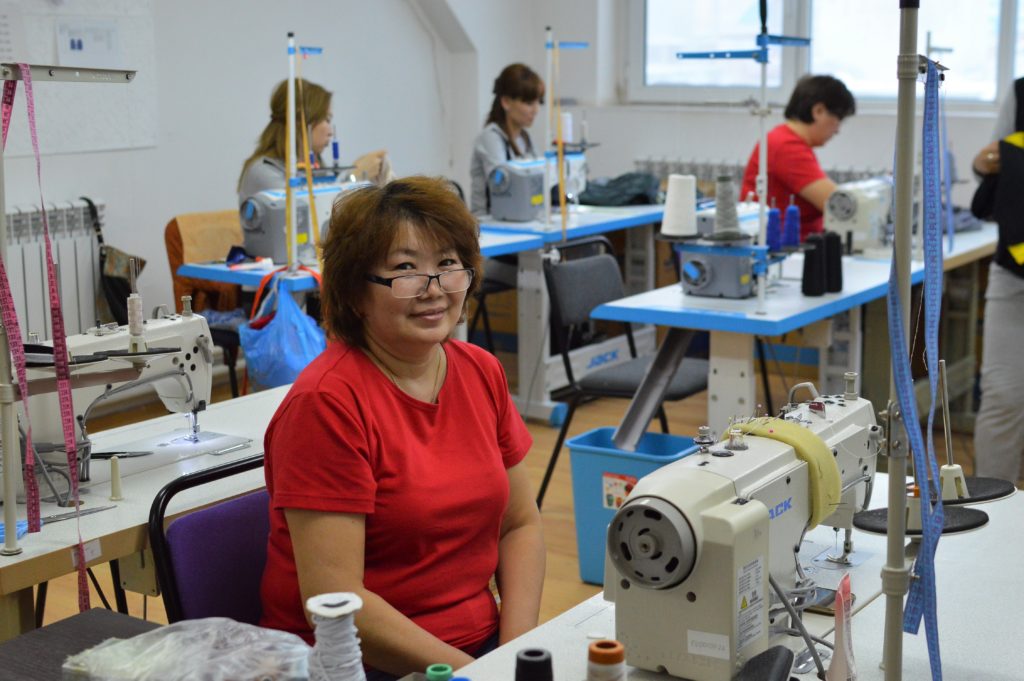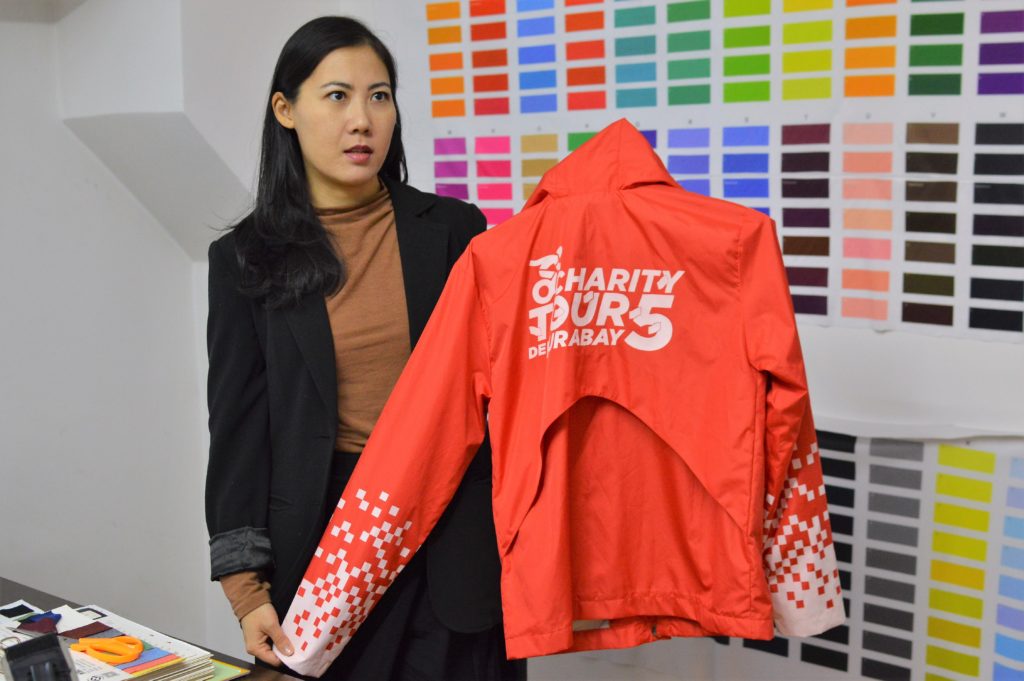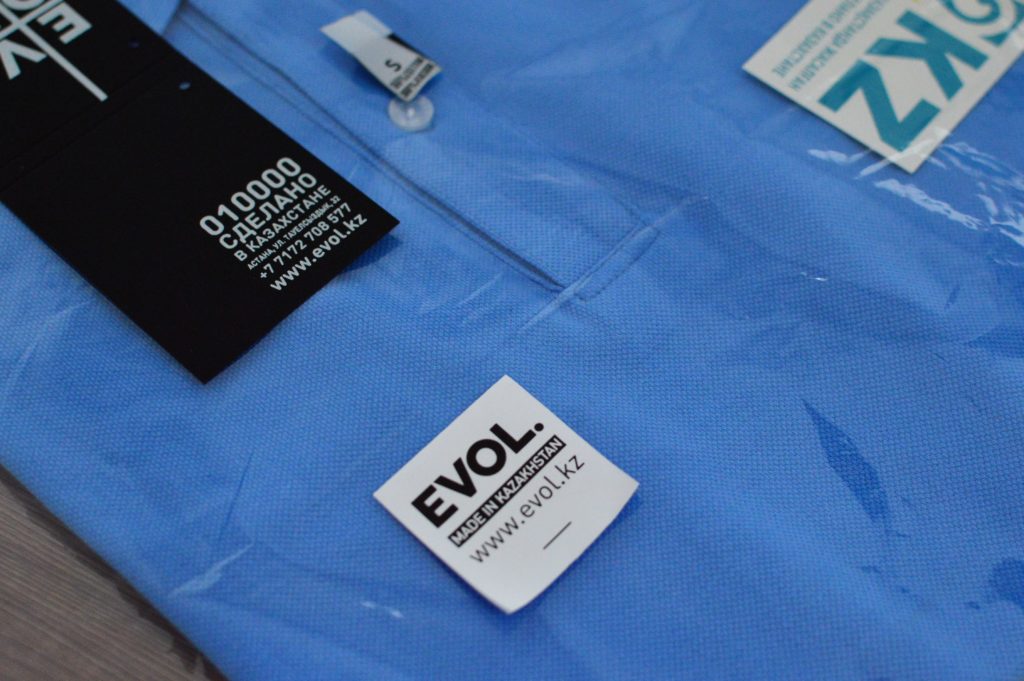NUR-SULTAN – Light industry is one of the priorities for the Kazakh economy. Product exports were $108.5 million for January-August 2018, 21 percent lower compared to the previous year. Imports reached $845 million, 6.2 percent higher than in 2017.
Approximately 992 enterprises, 13 large, 27 medium-sized and 952 small companies, operate in light industry, reported the Atameken National Chamber of Entrepreneurs. The field, which represents 0.9 percent of manufacturing, is divided into textiles (51 percent), clothing (38 percent) and leather goods (11 percent). Women make up 90 percent of those employed in factories.
Despite challenges, large and small companies are optimistic about the future and feel competition is good for business.
Shymkent-based AGF Group is the country’s largest producer of home textiles. Located at the Ontustik Special Economic Zone (SEZ), the plant has supplied products for IKEA stores in Russia since 2016.
The company recently won the Forbes Kazakhstan World Entrepreneur of The Year award in the regional leader category.
“We studied regulations, laws and internal rules for working with IKEA. We needed some funds and time to restructure the processes and change for the better. But we decided to change, regardless of whether we signed an agreement with IKEA or not,” said company head Gaukhar Nassyrova.
AGF needed nearly two years to review all the necessary procedures for IKEA suppliers. The company’s openness and level of competence were essential.
“The location of the plant at the SEZ and its close connection to the Eurasian Economic Union were our main advantage,” she noted.
Cooperation between AGF and IKEA has grown 50-60 percent annually. The partnership improved production standards and developed necessary market skills.
Now, the company is focused on promoting its own brand of home textiles.
“We received a grant from the European Bank for Reconstruction and Development (EBRD) to develop our brand in 2015. Dependence on one customer is a huge risk,” said Nassyrova.
AGF developed the Suave brand of luxury linens and Arua brand for the business-plus segment. It also introduced a market entry strategy.
“Thanks to the work with our consultants, we began to look at our products from the point of view of the customer. The established business relations with suppliers, the technological chain and the benefits provided by the SEZ gave us a competitive price,” she added.
The company delivers Arua products to stores including Home and Metro hypermarkets. Its own brands represent 5 percent of production, as AGF is more interested in developing technology supplies to commercial networks and its own distribution network.
AGF has experienced a five-fold increase in sales compared to 2017.
“We do not have many high-quality brands, for example, like Mimoriki brand. Most clothing and textile factories operate on production order. It is difficult for local brands to compete with Turkish goods, which are in demand in the Russian and international markets. At the same time, local customers believe that local items should be cheap, but no one takes into account the fact that we purchase materials, fabrics and accessories [abroad] and this affects the price,” she said.
This year, AGF is participating in the Fast Track accelerated programme launched by EBRD in cooperation with Ernst & Young.
“We have high expectations about this initiative. We have always been a manufacturing company entering into production order contracts. Recently, we began to produce our own linens and started to think how to bring them to the market. The development of brands and new products requires time and financing. We expect that the programme will help determine the risks in these areas and how we can minimise them so that we can find out how effective it is from a financial point of view,” she said.
The shortage of high-quality materials is one of the industry’s main challenges, said Almagul Kassymova, general manager of Metropolitan Textile, which has produced sports and special clothing in the capital since 2015. The lack of production technologists, cutters and designers is also an issue in the northern region.
Although small, Metropolitan’s list of major customers is quite impressive, including Etalon Auto gas station network, Hilton Astana, Kazakh Humanitarian Law University, Nazarbayev University, Hotel Ritz Carlton Astana and Zhigergas.
“We don’t have many competitors in the local market. We compete more with imported goods in terms of price. The uniqueness of our product is that we can develop an individual design for the customer in a short period of time,” she said.
Kassymova feels unique design in sports-style clothing is a promising direction. Last year, the company launched the Evol.Collab brand of athleisure wear, a trend that combines athletic and leisure looks. The sportswear depends on the nature of the sport, climatic conditions and type of physical activity, and manufacturers choose fabrics based on these indicators.
“Our collection consists of only five models for women and five for men. All of them can be combined with each other for a total look. We want our brand to be predictable. People will come and not be overwhelmed by the choice, but at the same time, items will be of high-quality,” she said.
The new collection is available online and the showroom is expected to be located adjacent to the sewing workshop.
“We plan to expand production and develop special designs to reduce production costs and compete better. We also want to increase online sales,” she added.


